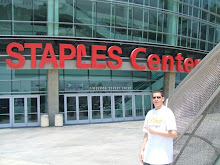IN A LARGE enclosure, among many trees, was a church. People, brown and white, were going in. Inside there was more light than in the European churches, but the arrangements were the same. The ceremony was in progress and there was beauty. When it was over, very few of the brown talked to the white, or the white to the brown, and we all went our different ways.
On another continent there was a temple, and they were singing a Sanskrit chant; the Puja, a Hindu ceremony, was being performed. The congregation was of another cultural pattern. The tonality of Sanskrit words is very penetrating and powerful; it has a strange weight and depth.
You can be converted from one belief to another, from one dogma to another, but you cannot be converted to the understanding of reality. Belief is not reality. You can change your mind, your opinion, but truth or God is not a conviction: it is an experience not based on any belief or dogma, or on any previous experience. If you have an experience born of belief, your experience is the conditioned response of that belief. If you have an experience unexpectedly, spontaneously, and build further experience upon the first, then experience is merely a continuation of memory which responds to contact with the present. Memory is always dead, coming to life only in contact with the living present.
Conversion is change from one belief or dogma to another, from one ceremony to a more gratifying one, and it does not open the door to reality. On the contrary, gratification is a hindrance to reality. And yet that is what organized religions and religious groups are attempting to do: to convert you to a more reasonable or a less reasonable dogma, superstition or hope. They offer you a better cage. It may or may not be comfortable, depending on your temperament, but in any case it is a prison.
Religiously and politically, at different levels of culture, this conversion is going on all the time. Organizations, with their leaders, thrive on keeping ma in the ideological patterns they offer, whether religious or economic. In this process lies mutual exploitation. Truth is outside of all patterns, fears and hopes. If you would discover the supreme happiness of truth, you must break away from all ceremonies and ideological patterns.
The mind finds security and strength in religious and political pattern, and this is what gives stamina to the organizations. There are always the die-hards and the new recruits. These keep the organizations, with their investments and properties, going, and the power and prestige of the organizations attract those who worship success and worldly wisdom. When the mind finds the old patterns are no longer satisfying and life-giving, it becomes converted to other more comforting and strengthening beliefs and dogmas. So the mind is the product of environment re-creating and sustaining itself on sensations and identifications; and that is why the mind cling to codes of conducts patterns of thought, and so on. As long as the mind is the outcome of the past, it can never discover truth or allow truth to come into being. In holding to organizations it discards the search for truth.
Obviously, rituals offer to the participants an atmosphere in which they feel good. Both collective and individual rituals give a certain quietness to the mind; they offer a vital contrast to the everyday, humdrum life. There is a certain amount of beauty and orderliness in ceremonies, but fundamentally they are stimulants; and as with all stimulants, they soon dull the mind and heart. Rituals become habit; they become a necessity, and one cannot do without them. This necessity is considered a spiritual renewal, a gathering of strength to face life, a weekly or daily meditation, and so on; but if one looks more closely into this process, one sees that rituals are vain repetition which offer a marvellous and respectable escape from self-knowledge. Without self-knowledge, action has very little significance.
The repetition of chants, of words and phrases, puts the mind to sleep, though it is stimulating enough for the time being. In this sleepy state, experiences do occur, but they are self-projected. However gratifying, these experiences are illusory. The experiencing of reality does not come about through any repetition, through any practice. Truth is not an end, a result a goal; it cannot be invited, for it is not a thing of the mind.
Friday, September 26, 2008
Subscribe to:
Post Comments (Atom)

No comments:
Post a Comment